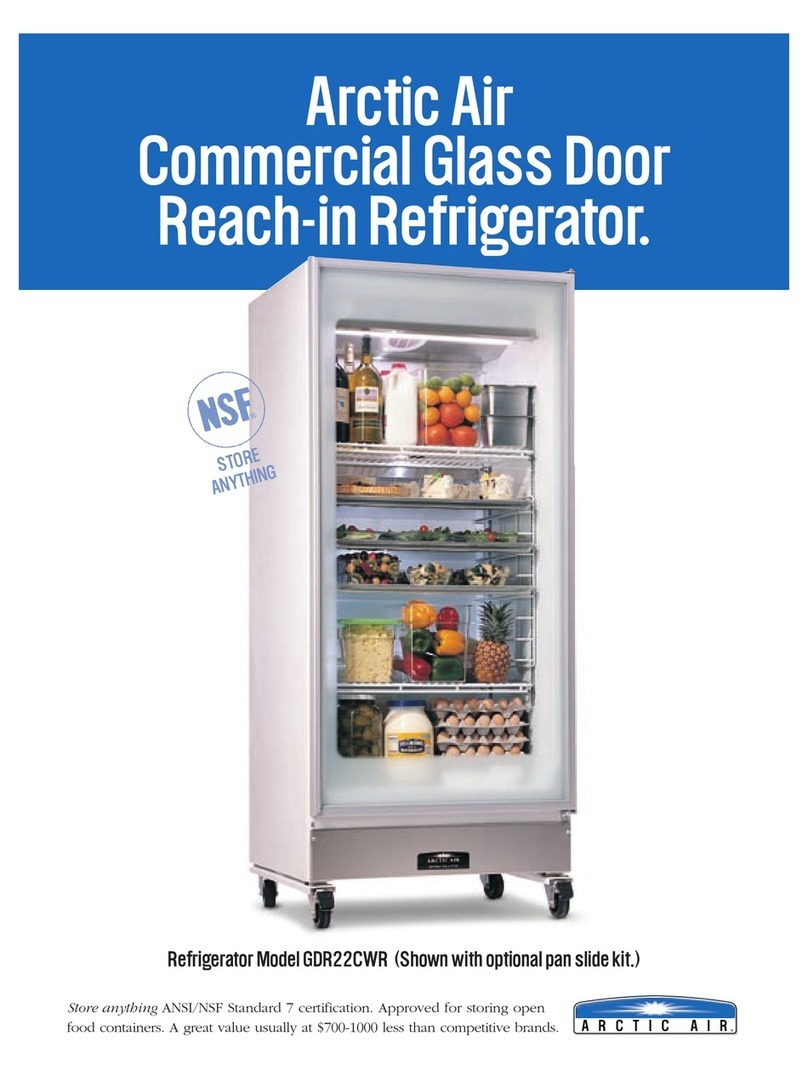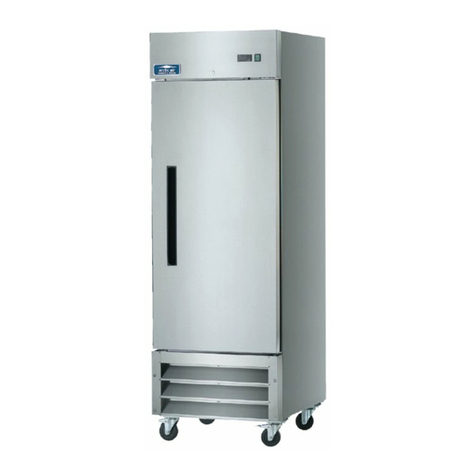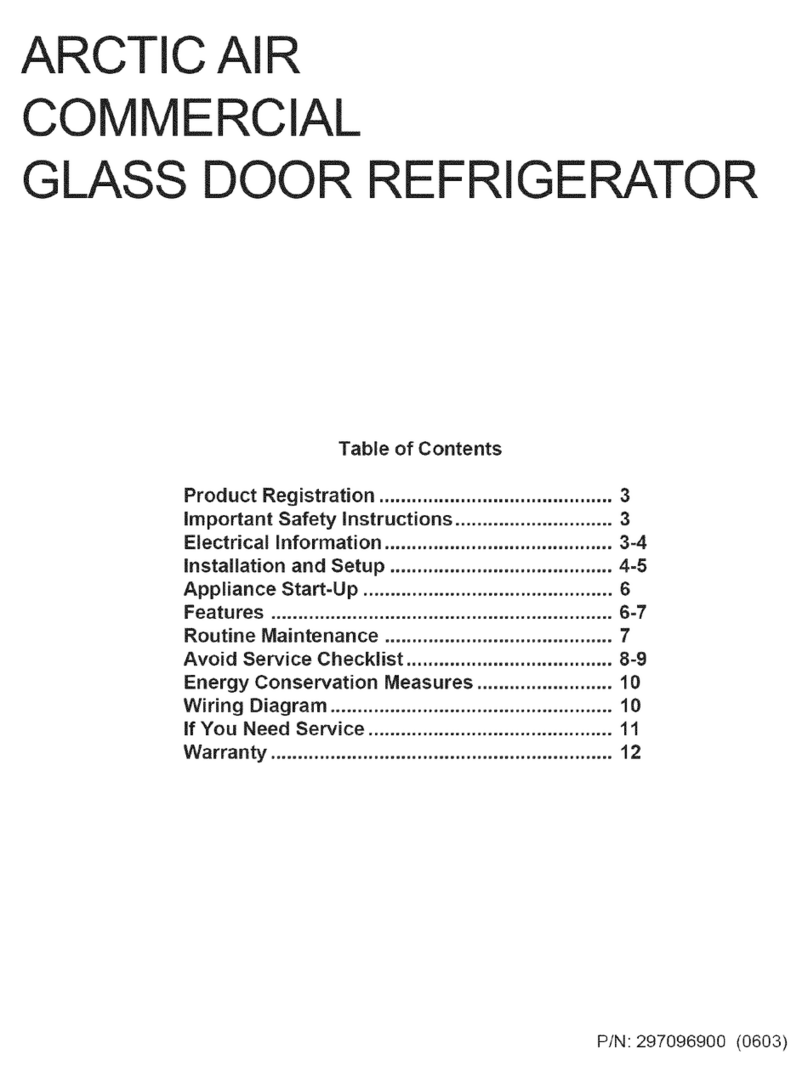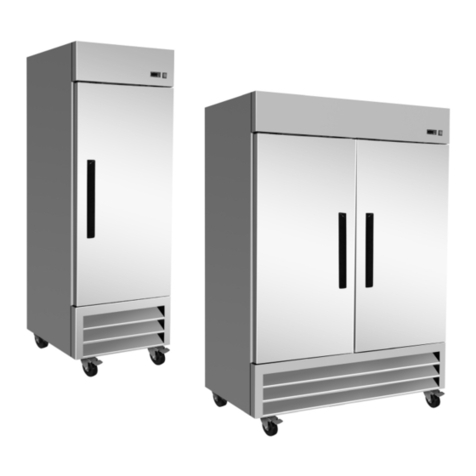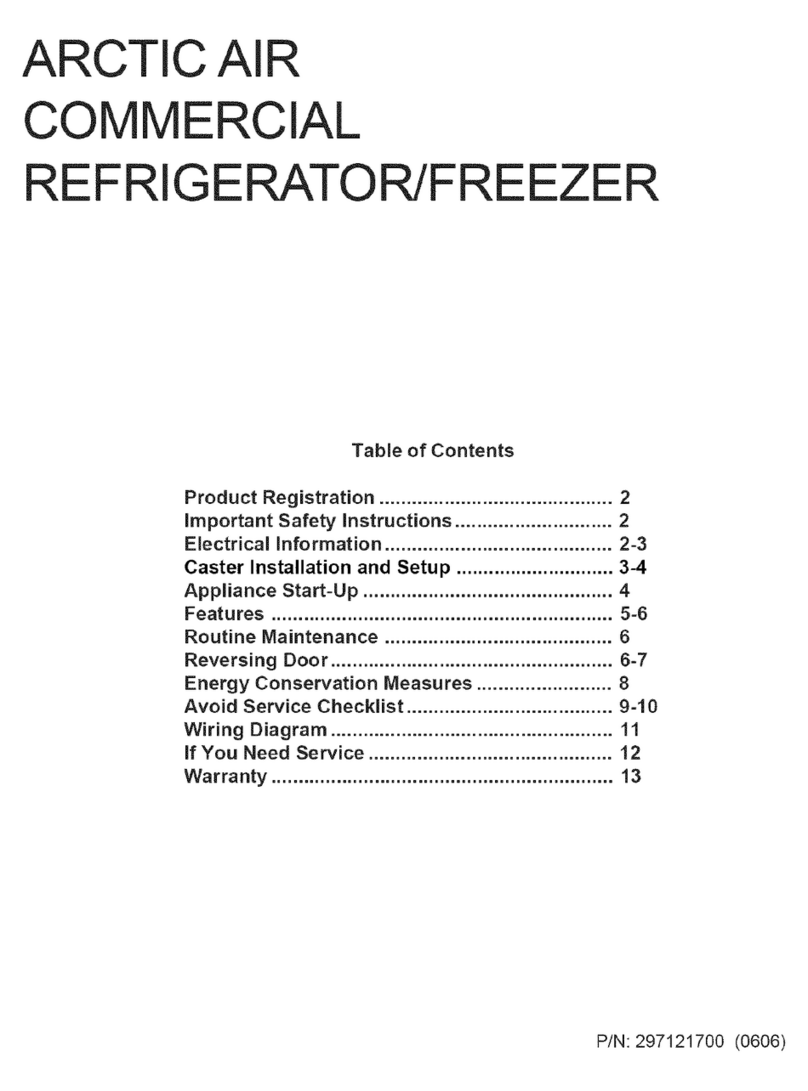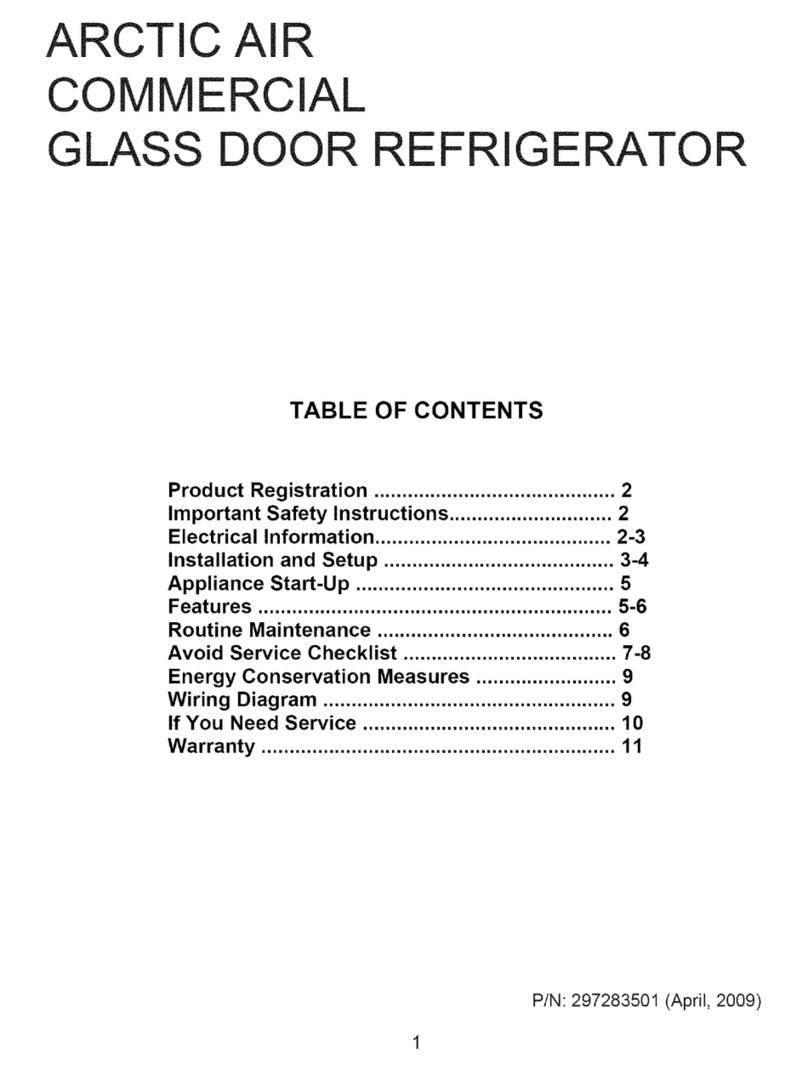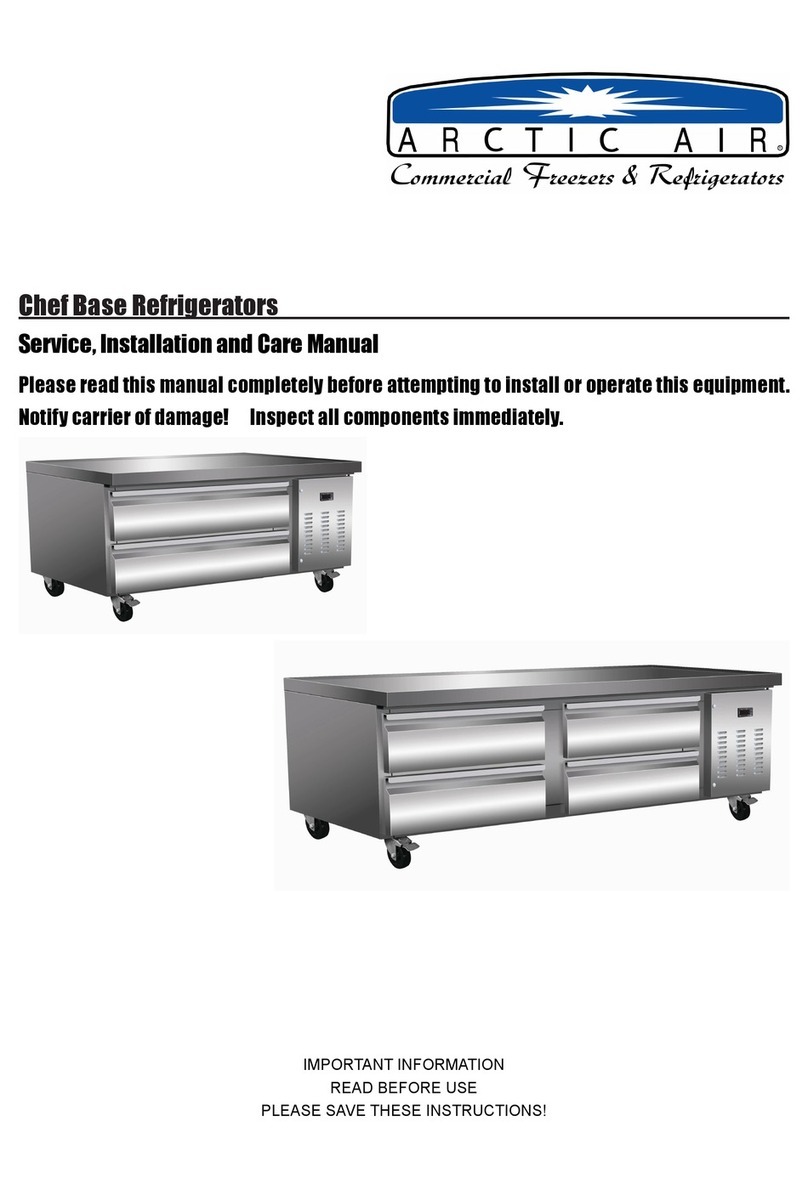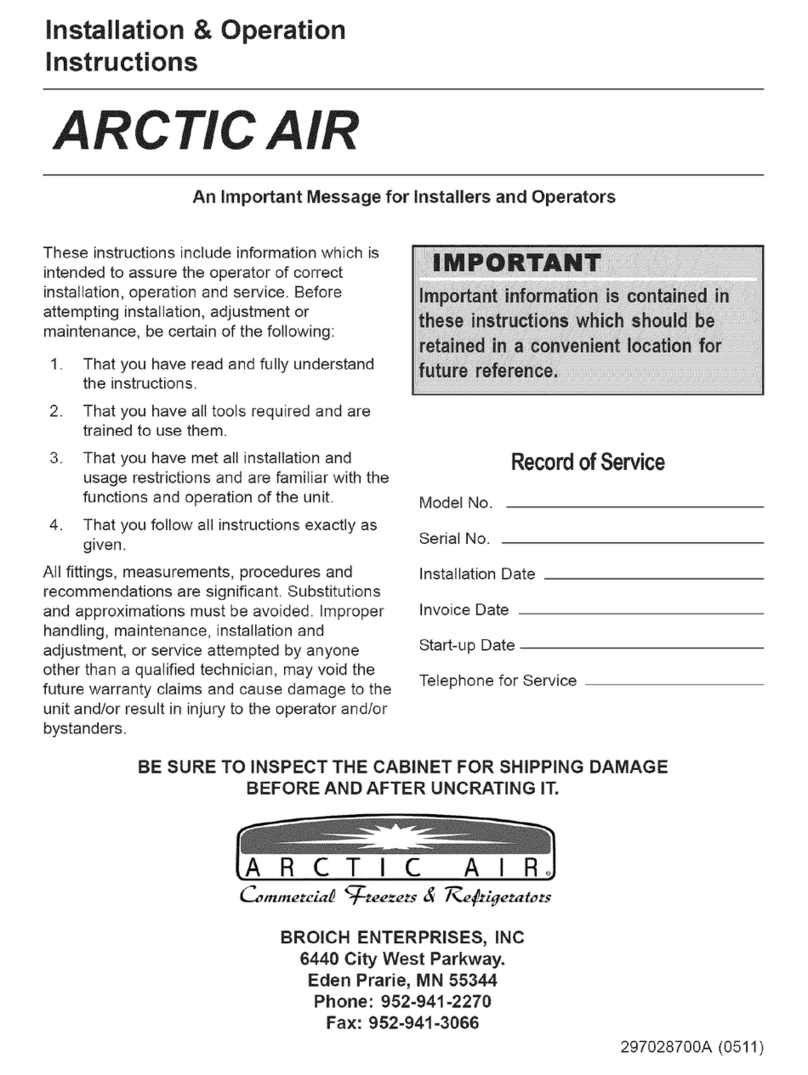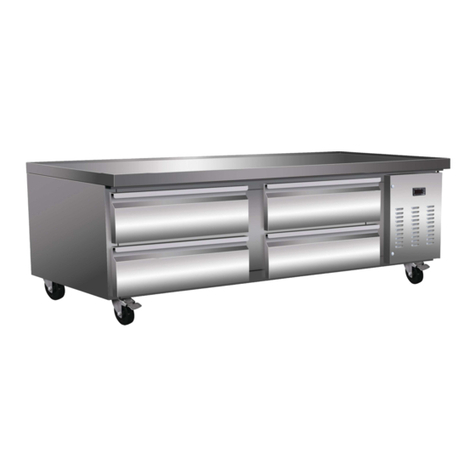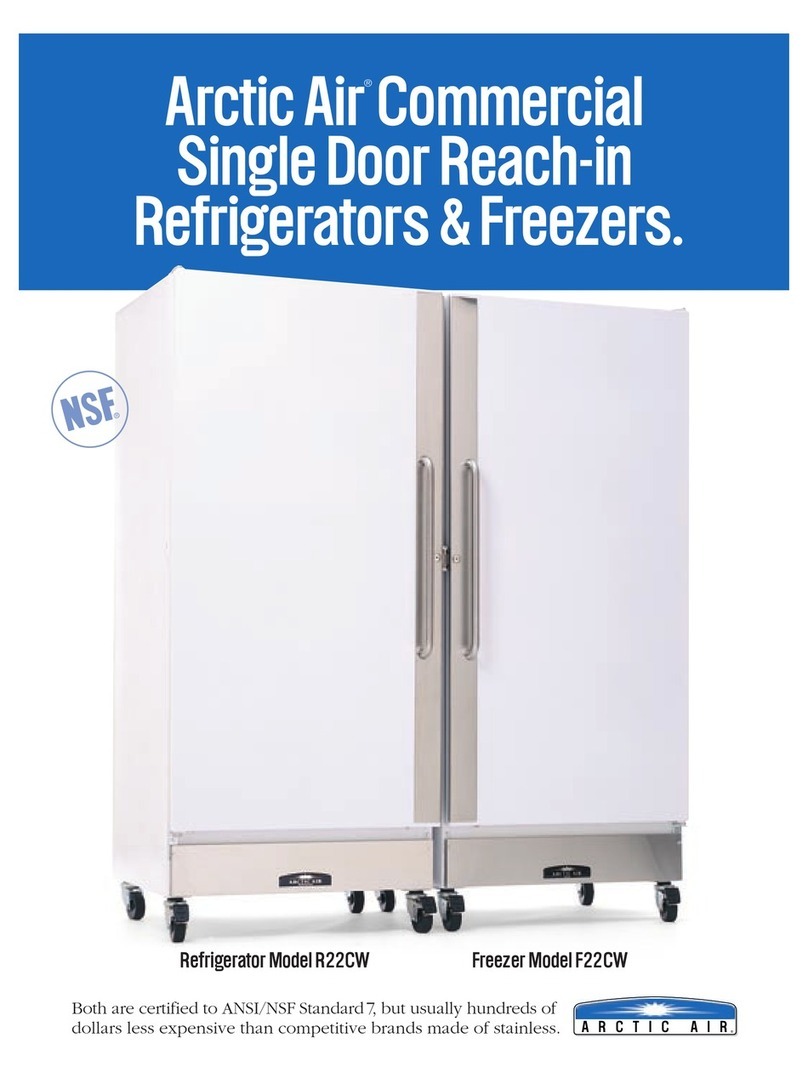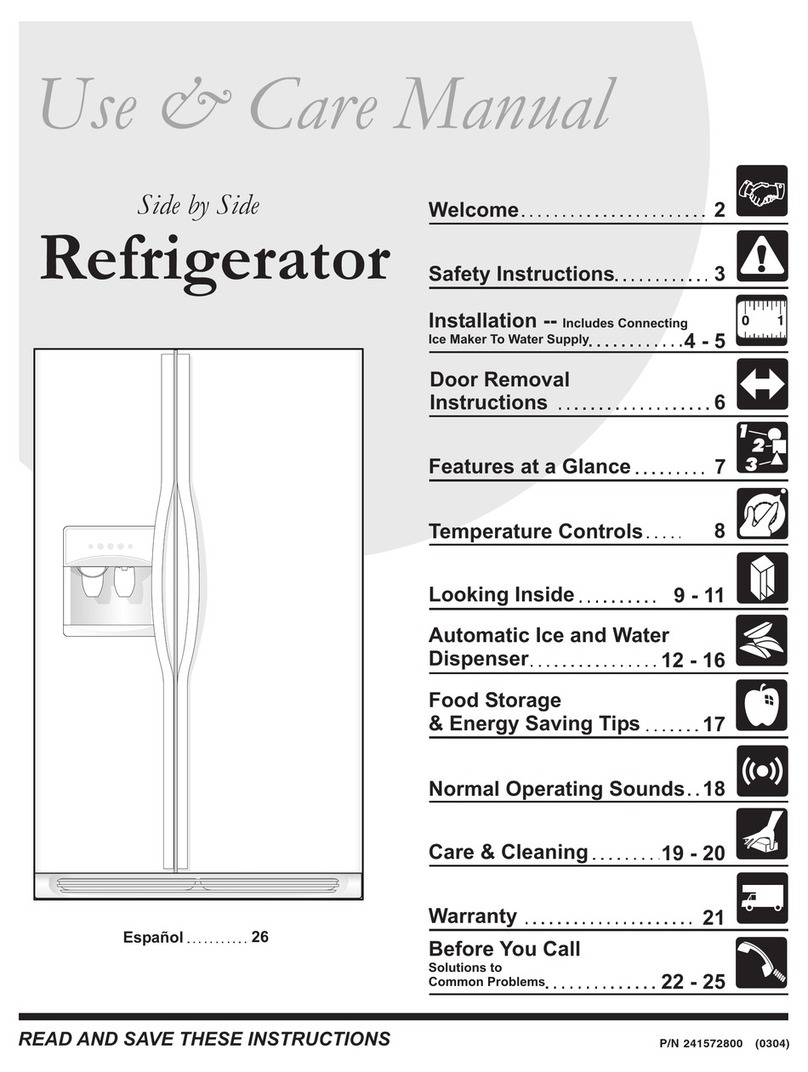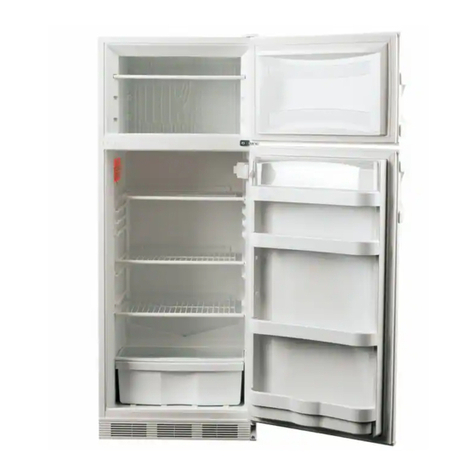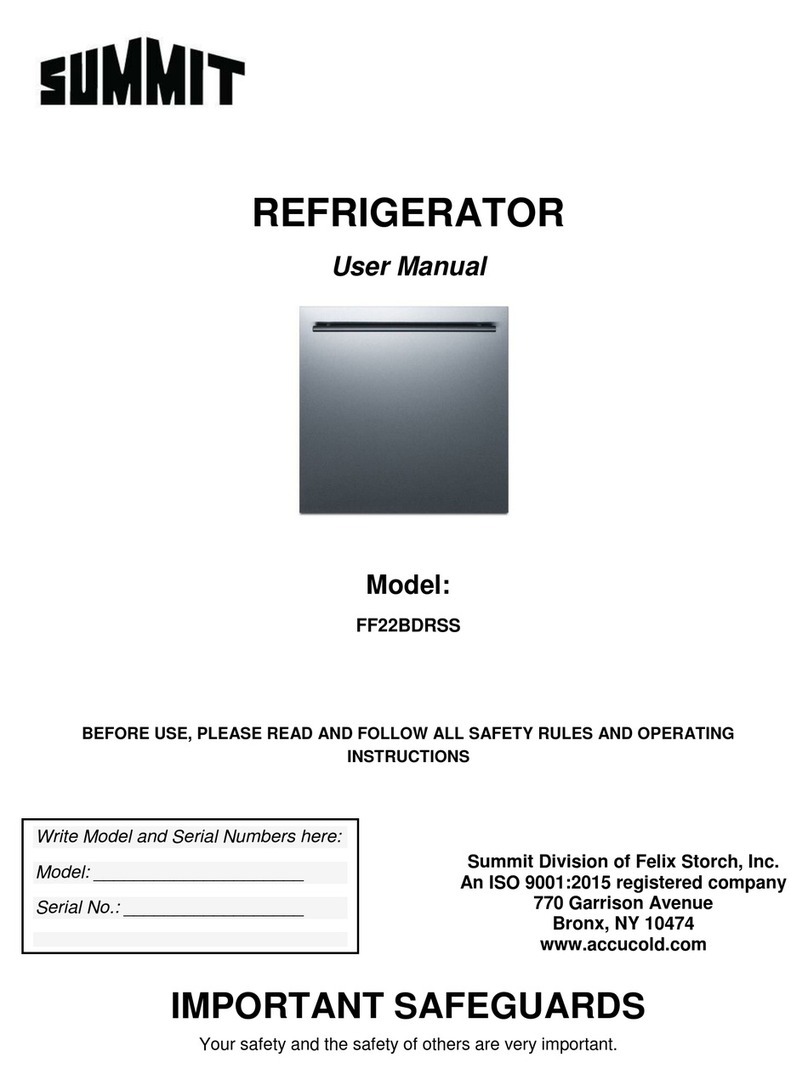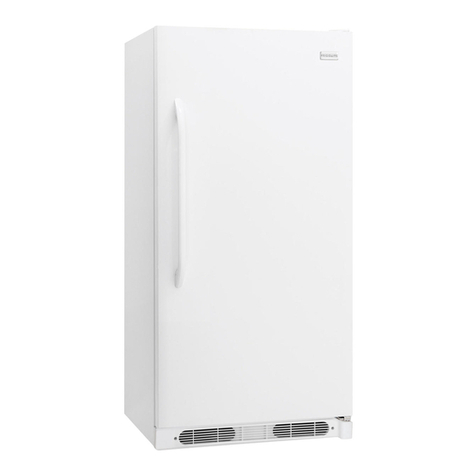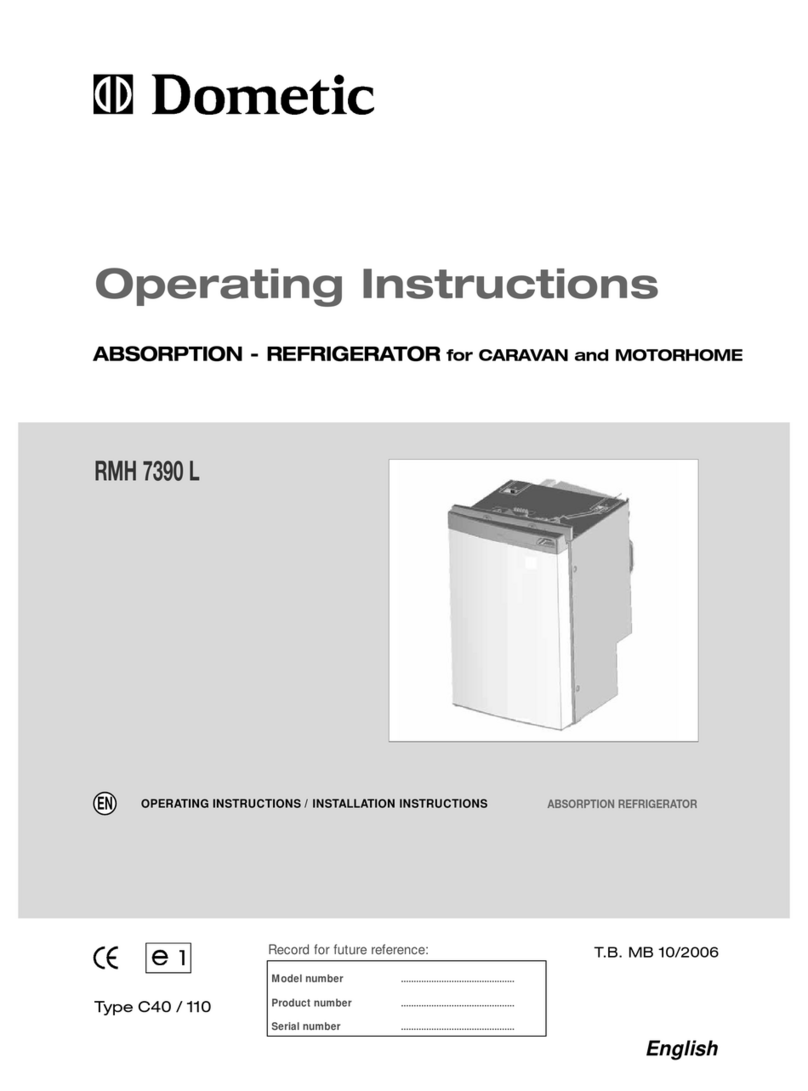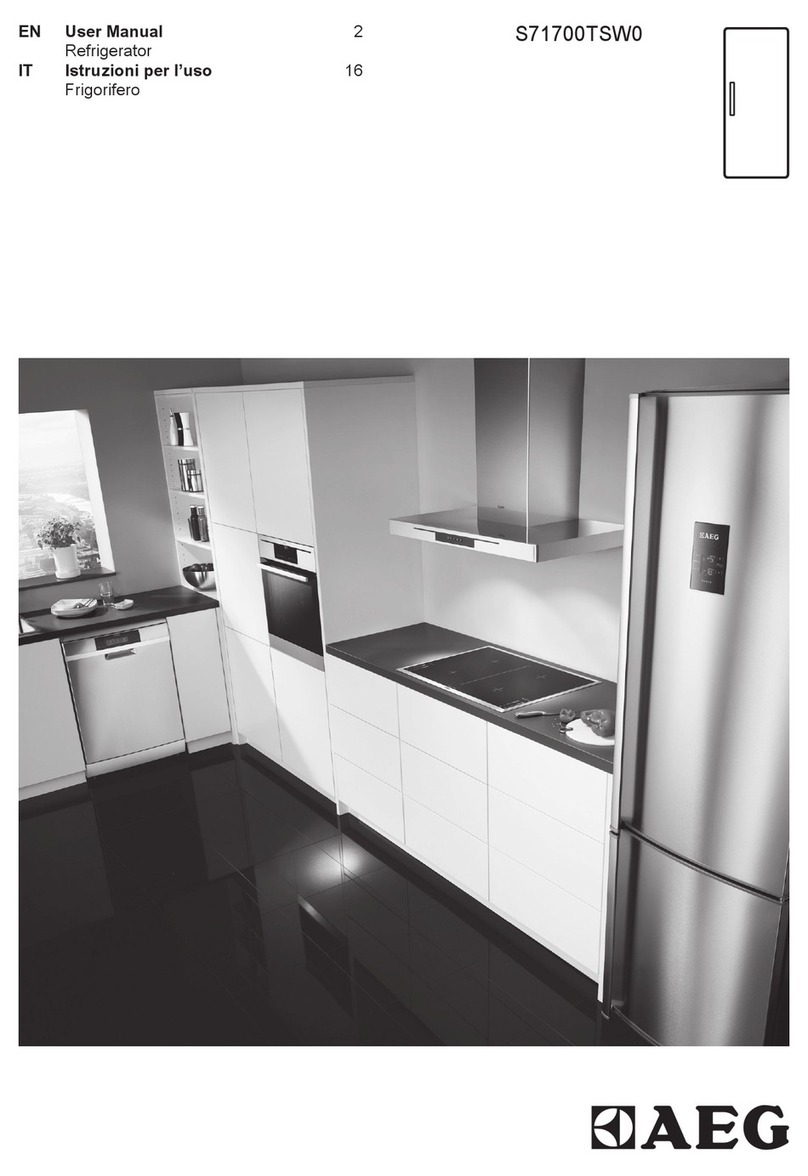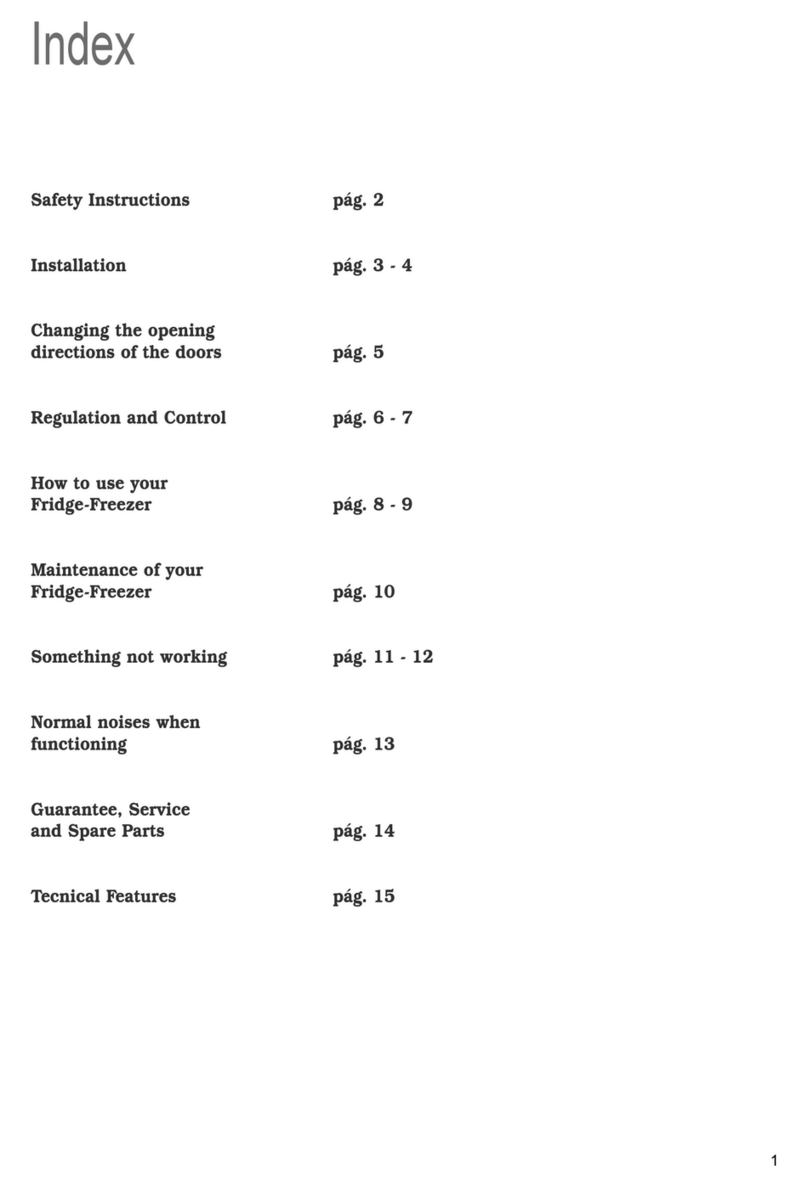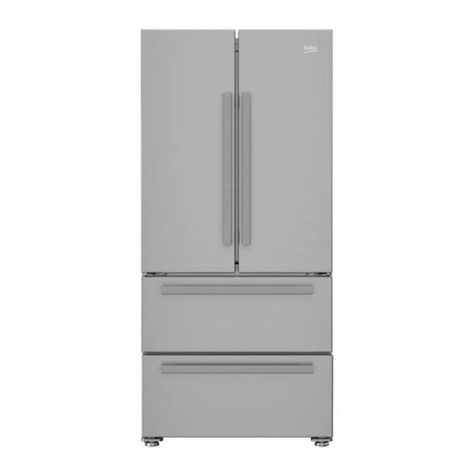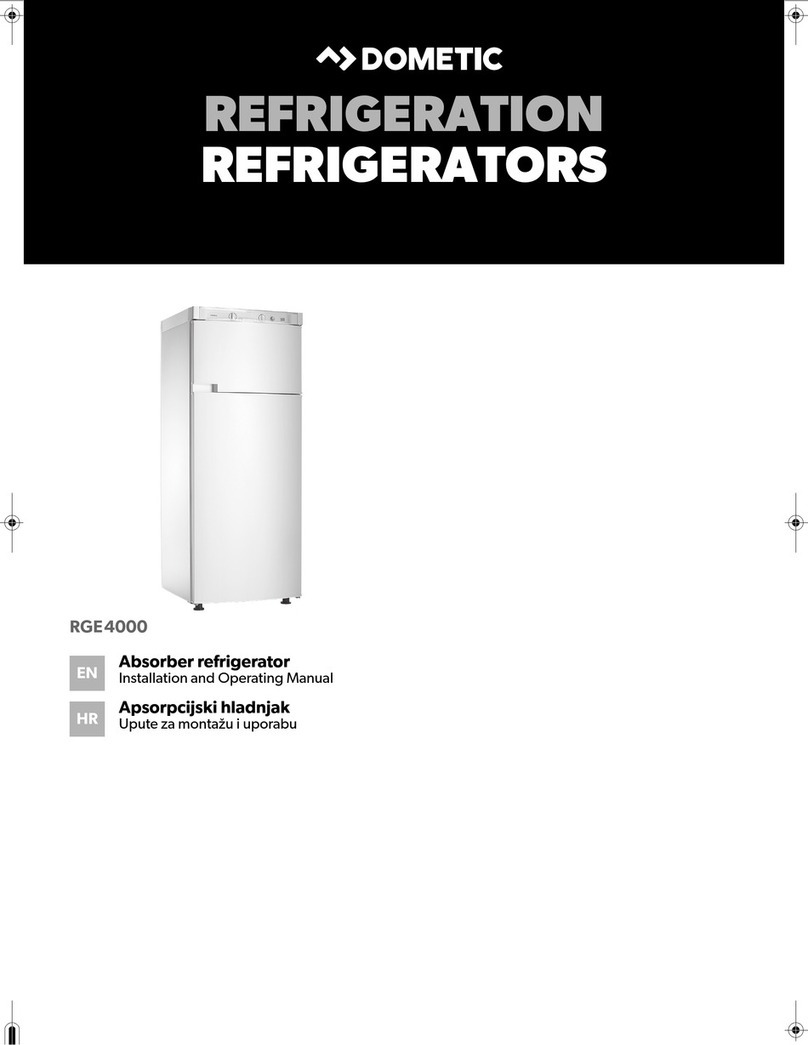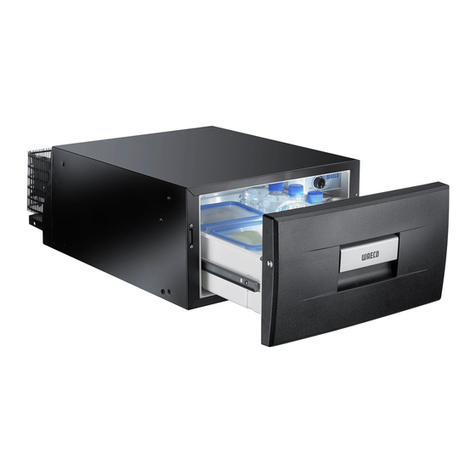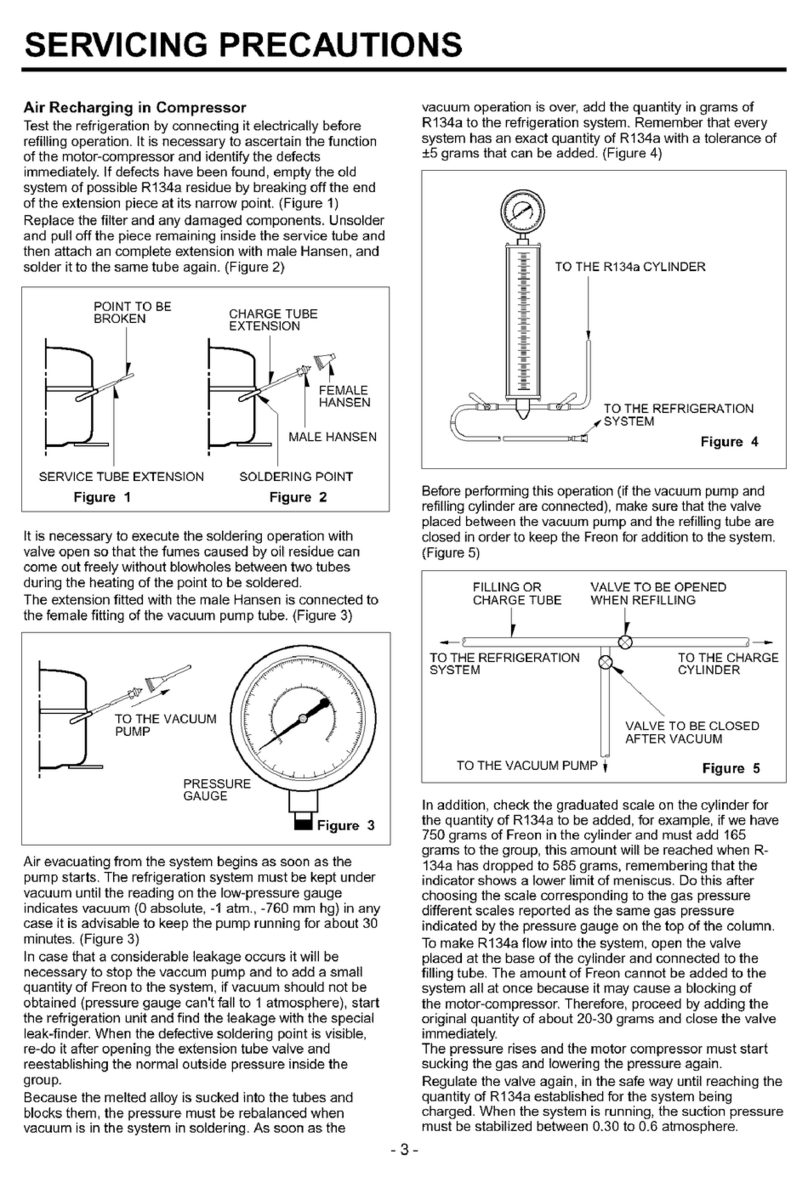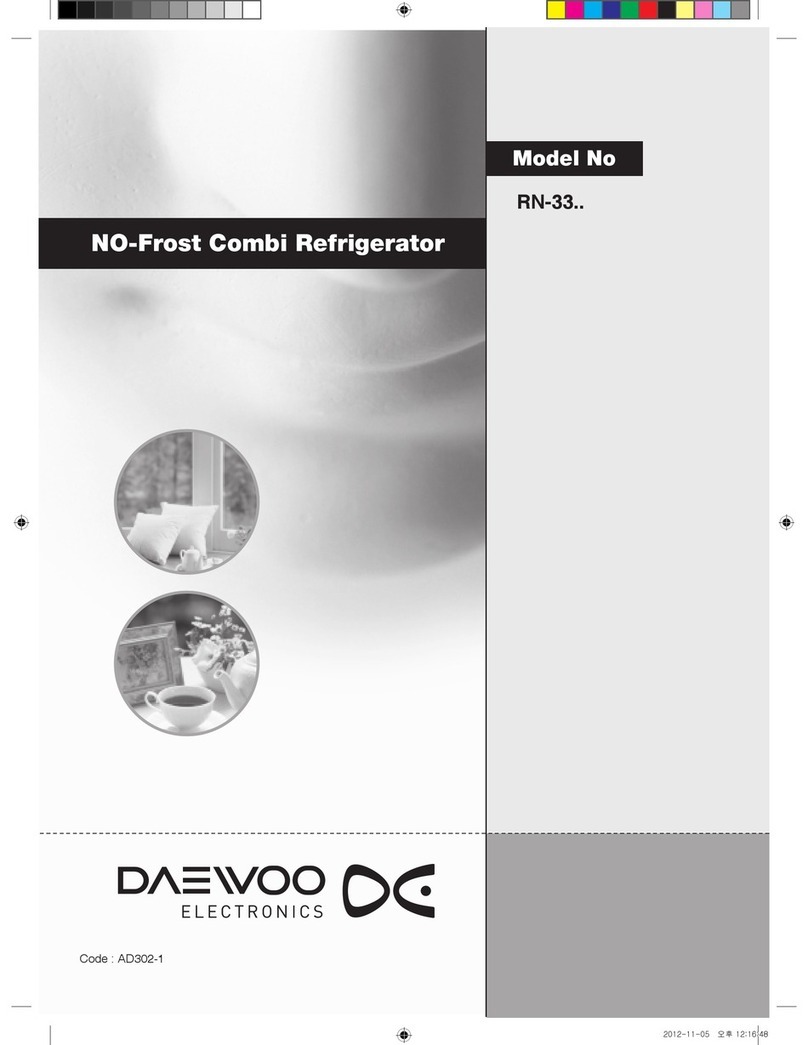
ServiceandInstallationManual
7
Do not use an abrasive cleaner because it will scratch the paint and plastic and can damage the breaker strips
and gaskets.
Cleaning the Condenser Coil
The condenser coil requires regular cleaning, and is recommended every 90 days. In some instances,
you may find that there is a large amount of debris and dust or grease accumulated prior to the 90 day
time frame. In these cases the condenser coil should be cleaned every 30 days.
If the build up on the coil consists of only light dust and debris, the condenser coil can be cleaned with a simple
brush. Heavier dust build-up may require a vacuum or even compressed air to blow through the condenser
coil.
If heavy grease is present, there are de-greasing agents available for refrigeration use and specifically for the
condenser coils. The condenser coil may require cleaning with the de-greasing agent and then blown through
with compressed air.
Failure to maintain a clean condenser coil can initially cause high temperatures and excessive run times.
Continuous operation with dirty or clogged condenser coils can result in compressor failures. Neglecting the
condenser coil cleaning procedureswill void any warranties associated with the compressor or cost to
replace the compressor.
Never use a high pressure water wash for this cleaning procedure as water can damage the
electrical components located near or at the condenser coil.
In order to maintain proper refrigeration performance, the condenser fins must be cleaned of dust, dirt and
grease regularly. It is recommended that this be done at least every three months. If conditions are such that
the condenser is totally blocked in three months, the frequency of cleaning should be increased. Clean the
condenser with a vacuum cleaner or stiff brush. If extremely dirty, a commercial-grade condenser cleaner may
be required.
NEVERUSE STEEL PADS, WIRE BRUSHES OR SCRAPERS!
MAINTENANCE
Cleaning solutions need to be alkaline based or non-chloride based. Chlorides are also commonly found in
hard water, salts, and household and industrial cleaners. If cleaners containing chlorides are used, be sure to
rinse and dry thoroughly.
Routine cleaning of exterior can be done with soap and water. Extreme stains or greaseshould be cleaned with
a non-abrasive cleaner and plastic scrub pad. It is always good to rub with the grain of the steel. There are also
stainless steel cleaners available which can restore and preserve the finish of the steels protective layer.
Never use an acid based cleaning solution!Many food products have an acidic content
which can deteriorate the finish. Be sure to clean the steel surfaces of ALL food products.
Gasket Maintenance
Gaskets require regular cleaning to prevent mold and mildew build up and also to keep the elasticity of the
gasket. Gasket cleaning can be done with the use of warm soapy water. Avoid full strength cleaning
products on gaskets as this can cause them to become brittle and prevent proper seals. Do not use
